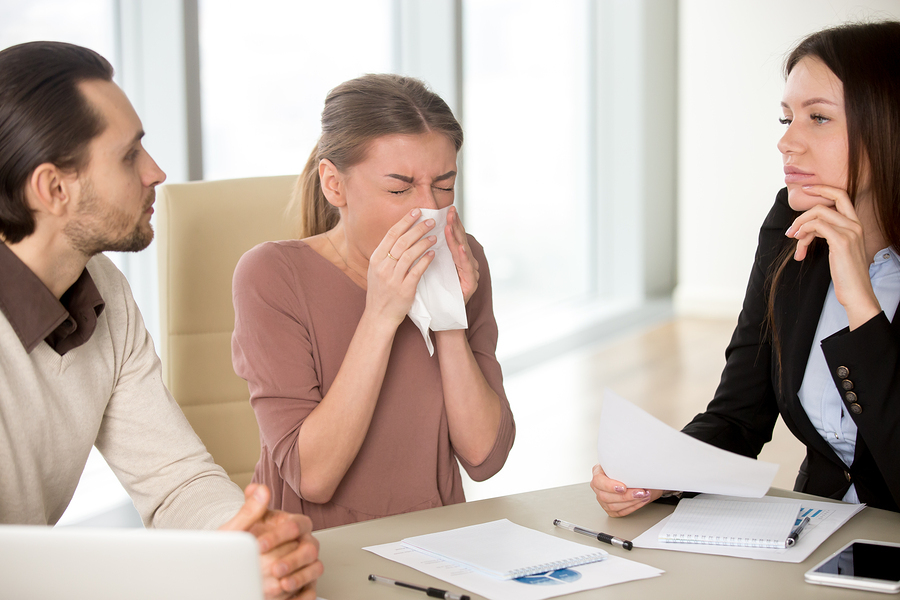
There are specific jobs that make you more prone or directly put you on the path of contracting a disease. In some cases, there is a set of procedures to follow, and when there are none, you should take it upon yourself to educate yourself. So what steps should you take after getting an illness through work?
1. Notify the Employer
If you get sick through work, it is crucial to inform your supervisor or human resources manager as soon as you can. The main reason for doing this is so that the supervisor can assess the situation and offer further guidance and the necessary paperwork. The documents you will be given from work may require the hospital to fill out some documents before they can provide any treatment for insurance purposes.
This step is also important because if you have contracted a contagious illness, the supervisor will have to isolate those in the exposure area and decide whether locking down a department is warranted. You should follow the set company protocols for injuries and illnesses whenever possible. Ensure that you get written evidence when reporting the disease to your employer.
2. Medical Attention
Before getting any medical attention, it is essential to notify the first medical personnel that attends to you that your illness is work-related. Remind the medical staff attending to you, especially the doctor, to fill out all the necessary medical analyses for your first hospital visit. All treatments and subsequent surgeries should have the required paper trail.
You may need to determine whether the company and insurance policy has listed any specific hospitals where the employee should seek medical attention when hurt through work. Being sure what steps to take will help you avoid unnecessary tussles and reduce the chances of your claim being denied. If you are unsure, ask the supervisor which company’s insurance covers hospitals. It is advised that you get a written report from your doctor after treatment. Track your expenses related to the treatment of the illness, such as transport to the hospital and any out-of-pocket costs, because they should be refunded, but only after you offer proper documentation such as receipts.
3. Sick Leave
The next step is to provide your employer with the written report from your doctor and apply for the stipulated sick leave days. The employer will then look at the compensation owed versus the leave days specified in the company’s laws. It is vital to keep a copy of all the documents you send to your employer.
The sick leave will document what amount you will be paid, how long, and which other exceptions and benefits you are owed as you recover. If the illness is prolonged and you require more than the stipulated sick leave days, your employer should give you written communication on what will happen then. In some cases, if the injury or illness is not contagious and you exhaust your sick leave days, the employer is tasked with providing a suitable working environment for you.
4. Legal Representation
It may be hard to keep up with all the procedures required after a work-related illness. You may also not be fully aware of your legal rights, especially for companies without specified laws. Companies like AP Green have failed to warn their workers about the dangers of asbestos. This is why having a union representative or a worker’s attorney is necessary. You will need lawyers working to ensure that your rights and compensation are not watered down and are fully met.
Having legal representation ensures that unscrupulous employers do not misrepresent the facts of your illness to protect the company at your expense. Lawyers are tasked with determining if the working conditions predisposed to the disease and whether they could have been avoided. You may be entitled to compensation above medical expenses if your lawyer can provide evidence of negligence by your employer, which led to you contracting the illness at work.
It is essential to look for a qualified worker’s lawyer as they are better versed with the laws pertinent to your claims. Ensure that you get some background information on the law practice you will be using to determine how long they have been practicing and their success rate if the case goes to court.
Accidents and illnesses are unprecedented and sometimes unavoidable. It helps when you know the necessary procedure and laws to protect your interests. Whenever you are unsure what rules apply, contact a lawyer.


